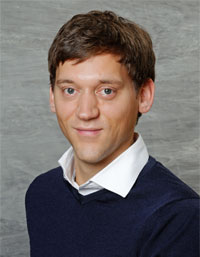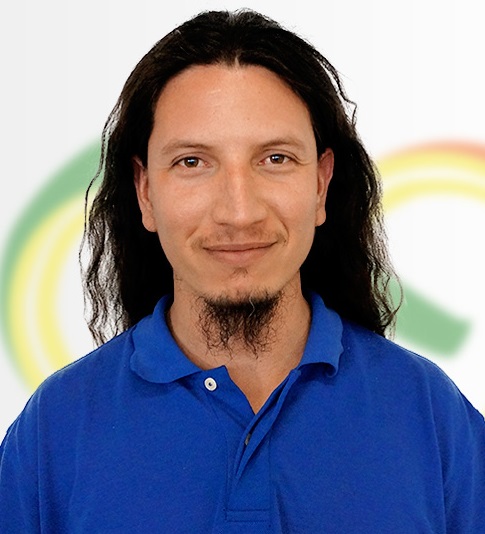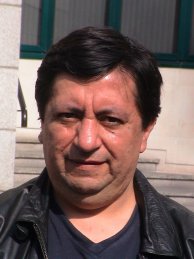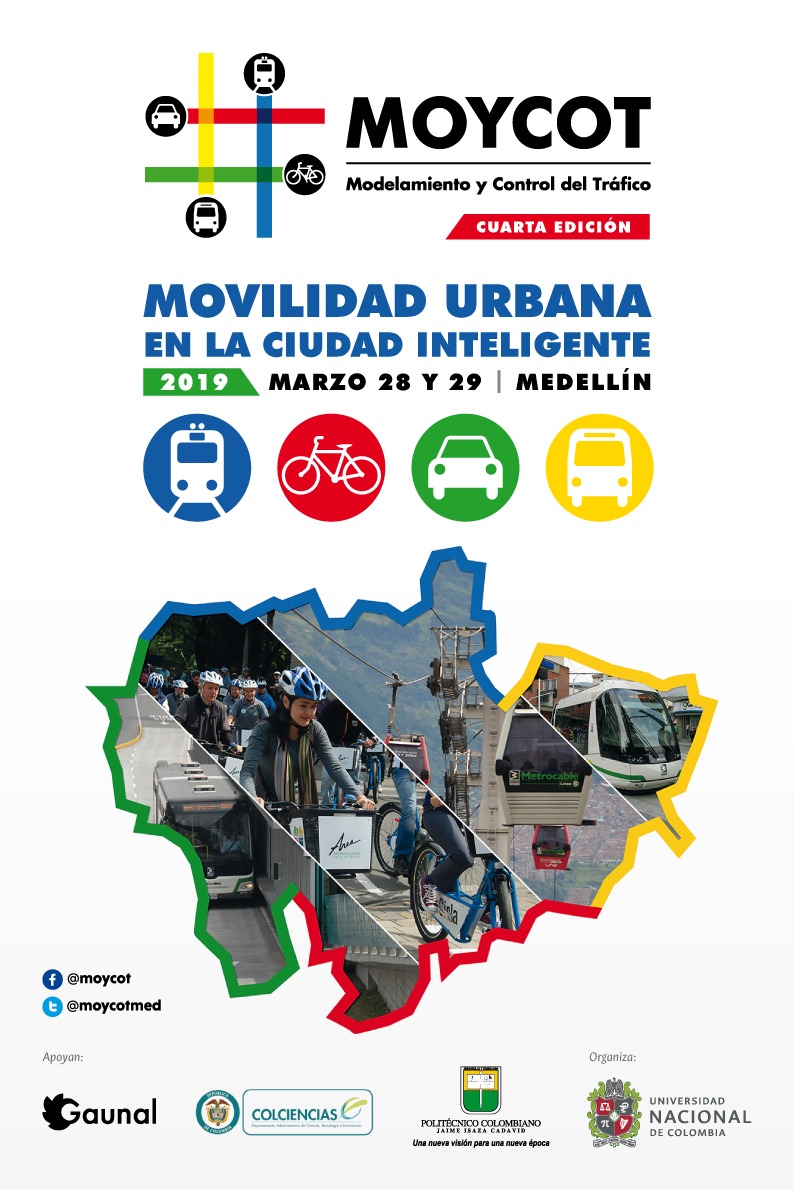Fourth International Conference on Traffic and Transport
Medellín, March 28 and 29, 2019
Inntu Hotel Transversal 39 # 75 -74
Objective
Open space for the discussion, the analysis and the debate for searching and implementing solutions that address the problem of mobility in the urban environment of the city of Medellín. In this space, we want to generate an exchange of work experiences from the point of view of the academy, the companies, and the government.
International Speakers
 |
 |
 |
|
Mirko Goletz German Aerospace Center (Alemania) |
Felipe Valencia Energy Center, Universidad de Chile (Chile) |
Sergio Velastín Senior Research Scientist,
Cortexica Vision Systems Ltd.
(Corteixca, Reino Unido) |
National Speakers
- Universidad Nacional de Colombia
- Poiltécnico Colombiano Jaime Isaza Cadavid
- Secretaría de moviliad de Medellín
- Metro de Medellín
- Secretaría distrital de movilidad de Bogotá
- Universidad de Antioquia
- Area Metropolitana del Valle de Aburrá
- Sistra
- Universidad Pedagógica y Tecnológica de Colombia - UPTC
- Universidad de San Buenaventura
- Sistemas Inteligentes en Red
- Satrack S.A
- Grupo Movilidad
- IDOM Consulting Engineering Architecture S.A.
- EnCarro
Conference program
| Thursday, March 28 | |||
| Hour | Itinerary | Speaker | Topic |
| 8:00 - 9:00 | Register | ||
| 9:00 - 9:30 | Opening, welcome and presentation of the project: Modeling and traffic control (MOYCOT) | Jairo Espinosa (Director of the project MOYCOT) |
|
| 9:30 - 9:40 | Software tools in MOYCOT: Simulation, acquisition, and analysis of traffic and emissions data | Andrés Acosta (Gaunal) | |
| 9:40 - 10:10 | FLEXI (Flow Estimation based on Collaborative System Information) | Christian Portilla (Gaunal) | |
| 10:10 - 10:30 | Coffee break | ||
| 10:30 - 10:50 | Metro of Medellín, a sustainable mobility model in the Valle de Aburrá | Ivan Dario Upegui Velasquez (Metro de Medellín) | Gobernance |
| 10:50 - 11:10 | The mobility observatory of Medellin, the data at the road safety service, the environment, and the traffic and transport management | Marta Lucía Suárez (Secretaría de Movilidad de Medellín - CIOS) | |
| 11:10 - 11:30 | Intelligent mobility in Colombia | Augusto Velasquez Mendez (Secretaría distrital de Movilidad) | |
| 11:30 - 12:10 | Conferencia - Ride-sourcing: Status Quo and Outlook | Mirko Goletz (Centro Aeroespacial Alemán) | |
| 12:10 - 14:00 | Lunch | ||
| 14:00 - 14:20 | Parking plan and parking lots in critical areas of MedellínParking plan and parking lots in critical areas of Medellín | Ivan Sarmiento (Universidad Nacional) | Urban transport and road safety |
| 14:20 - 14:40 | Reactive expansion plan of the Medellín Metro | Miguel Alfonso Melo Ruales (Metro de Medellín) | |
| 14:40 - 15:00 | Mobility survey, origins and destinations 2017 | Katherine Palacio Pino (Area Metropolitana del Valle de Aburrá) | |
| 15:00 - 15:20 | Road survival | Jorge Córdoba (Universidad Nacional) | |
| 15:20 - 16:00 | Coffee break | ||
| 16:00 - 16:20 | ParTraCI: A parallel implementation of TraCI for distributed simulations in SUMO | Nicolás Arroyo (Gaunal) | Intelligent Transportation Systems (ITS) |
| 16:20 - 16:40 | Communication protocols in the topic of traffic signaling | Humar Moreno (Sistra) | |
| 16:40 - 17:00 | Transport oriented developments: fundamental pillars of the smart city | Esteban Uribe Trujillo (IDOM Consulting Engineering Architecture S.A.) | |
| 17:00 - 17:10 | Closing day 1 | ||
| Friday, March 29 | |||
| Hour | Itinerary | Speaker | Topic |
| 8:30 - 8:40 | Welcome day 2 | Jairo Espinosa (Director proyecto MOYCOT) | |
| 8:40 - 9:00 | Motorcycles classification in urban traffic, using deep learning techniques | Jorge Espinosa (Poiltécnico Colombiano Jaime Isaza Cadavid) | Modeling and traffic simulation |
| 9:00 -9:20 | The speed of walking, an approach to establish stair capacity models | Jonatan Jair Villamarin Monroy (Universidad Pedagógica y Tecnológica de Colombia - UPTC) | |
| 9:20 - 9:40 | A conceptual framework of the multi-agent micro-simulation for the urban distribution of commodities | Cristian Gómez (Universidad Nacional) | |
| 9:40 - 10:00 | Multi-agent communication protocols used in processes of urban commodities transportation | Conrado Augusto Serna Uran (Universidad de San Buenaventura) | |
| 10:00 - 10:30 | Coffee break | ||
| 10:30 - 10:50 | Optimal charging and management of electric vehicles for public transport tasks which actively participate with the power network | Semaria Ruiz (Gaunal) | Sustainable mobility |
| 10:50 - 11:10 | Shared vehicles fleets: towards a sustainable mobility | Nicola Montorsi | |
| 11:10 - 12:00 | Electrification of the fuels: The particular case of the electromobility in Chile | Felipe Valencia (Universidad de Chile) | |
| 12:00 - 14:00 | Lunch | ||
| 14:00 - 14:20 | Cultural transformation and sustainability to create smart territories | Nathalia Baena (Sistemas Inteligentes en Red) | Intelligent Transportation Systems (ITS) |
| 14:20 - 14:40 | Evaluation of the dispersion of vehicular source pollutants using OpenFOAM and SUMO | Cesar Gomez (Gaunal) | |
| 14:40 - 15:00 | Collaborative mapping technologies for the optimization in using cycle-infrastructure | Natalia Da Silveira Arruda (Universidad de Antioquia) | |
| 15:00 - 15:20 | Evolution of telematics in the transport applying analytics and big data | Pablo Deossa (Satrack S.A.) | |
| 15:20 - 15:40 | Coffee break | ||
| 15:40 - 16:20 | Online-conference - Detection, and Tracking of Motorbikes/People using Deep Learning Techniques | Segio Velastín (Cortexica Vision Systems Ltd., Reino Unido) | Intelligent Transportation Systems (ITS) |
| 16:20 - 16:40 | The technology at the mobility service | Miriam Lucia Giraldo Trejos (Grupo Movilidad) | |
| 16:40 - 17:00 | Measurement method for the impact in the urban traffic management | Mauricio Carranza (Secretaría de Moviliad de Medellín) | |
| 17:00 - 17:20 | The closing of the event | ||

Cuarto Seminario Internacional de Tráfico y Transporte
Medellín 28 y 29 de Marzo de 2019
Hotel Inntu Transversal 39 # 75 -74
Objetivo
Abrir un espacio de discusión, análisis y debate para la búsqueda e implementacion de soluciones que aborden la problemática de movilidad en el entorno urbano de la ciudad de Medellín. En este espacio queremos generar un intercambio de experiencias de trabajo desde el punto de vista de la academia, la empresa y el estado.
Invitados Internacionales
 |
 |
 |
|
Mirko Goletz Centro Aeroespacial Alemán (Alemania) |
Felipe Valencia Centro de energía, Universidad de Chile (Chile) |
Sergio Velastín Senior Research Scientist,
Cortexica Vision Systems Ltd.
(Corteixca, Reino Unido) |
Invitados Nacionales
- Universidad Nacional de Colombia
- Poiltécnico Colombiano Jaime Isaza Cadavid
- Secretaría de moviliad de Medellín
- Metro de Medellín
- Secretaría distrital de movilidad de Bogotá
- Universidad de Antioquia
- Area Metropolitana del Valle de Aburrá
- Sistra
- Universidad Pedagógica y Tecnológica de Colombia - UPTC
- Universidad de San Buenaventura
- Sistemas Inteligentes en Red
- Satrack S.A
- Grupo Movilidad
- IDOM Consulting Engineering Architecture S.A.
- EnCarro
Agenda
| Jueves 28 de marzo | |||
| Hora | Itinerario | Expositor | Tema |
| 8:00 - 9:00 | Registro | ||
| 9:00 - 9:30 | Inauguración, bienevendia y presentación del proyecto: Modelado y control de tráfico en el proyecto (MOYCOT) | Jairo Espinosa (Director proyecto MOYCOT) |
|
| 9:30 - 9:40 | Herramientas de software en MOYCOT: Simulación, adquisición y análisis de datos de tráfico vehicular y emisiones | Andrés Acosta (Gaunal) | |
| 9:40 - 10:10 | FLEXI (Flow Estimation based on Collaborative System Information) | Christian Portilla (Gaunal) | |
| 10:10 - 10:30 | Intermedio: refrigerio + café | ||
| 10:30 - 10:50 | Metro de Medellín, un modelo de Movilidad sostenible en el Valle de Aburrá | Ivan Dario Upegui Velasquez (Metro de Medellín) | Gobernanza |
| 10:50 - 11:10 | Observatorio de Movilidad de Medellin, los datos al servicio de la seguridad vial, el medio ambiente y la gestion del transito y transporte | Marta Lucía Suárez (Secretaría de Movilidad de Medellín - CIOS) | |
| 11:10 - 11:30 | Movilidad Inteligente en Colombia | Augusto Velasquez Mendez (Secretaría distrital de Movilidad) | |
| 11:30 - 12:10 | Conferencia - Ride-sourcing: Status Quo and Outlook | Mirko Goletz (Centro Aeroespacial Alemán) | |
| 12:10 - 14:00 | Almuerzo | ||
| 14:00 - 14:20 | Plan de estacionamiento y parqueaderos en zonas críticas de Medellín | Ivan Sarmiento (Universidad Nacional) | Transporte urbano y seguridad vial. |
| 14:20 - 14:40 | Plan rector de expansión Metro de Medellín | Miguel Alfonso Melo Ruales (Metro de Medellín) | |
| 14:40 - 15:00 | Encuesta de movilidad, origen y destino 2017 | Katherine Palacio Pino (Area Metropolitana del Valle de Aburrá) | |
| 15:00 - 15:20 | Supervivencia Vial | Jorge Córdoba (Universidad Nacional) | |
| 15:20 - 16:00 | Intermedio: refrigerio + café | ||
| 16:00 - 16:20 | ParTraCI: Una implementación de TraCI en paralelo para simulaciones distribuidas en SUMO. | Nicolás Arroyo (Gaunal) | Sistemas Inteligentes de Transporte (ITS) |
| 16:20 - 16:40 | Protocolos de comunicación en el área de semaforizacion | Humar Moreno (Sistra) | |
| 16:40 - 17:00 | Desarrollos orientados al transporte: pilares básicos de la ciudad inteligente | Esteban Uribe Trujillo (IDOM Consulting Engineering Architecture S.A.) | |
| 17:00 - 17:10 | Cierre día 1 | ||
| Viernes 29 de marzo | |||
| Hora | Itinerario | Expositor | Tema |
| 8:30 - 8:40 | Bienvenida día 2 | Jairo Espinosa (Director proyecto MOYCOT) | |
| 8:40 - 9:00 | Clasificación de motocicletas en el tráfico urbano, utilizando técnicas de aprendizaje en profundidad (Deep Learning) | Jorge Espinosa (Poiltécnico Colombiano Jaime Isaza Cadavid) | Modelado y simulación de tráfico |
| 9:00 -9:20 | Velocidad de caminata, una aproximación para establecer modelos de capacidad en escalera | Jonatan Jair Villamarin Monroy (Universidad Pedagógica y Tecnológica de Colombia - UPTC) | |
| 9:20 - 9:40 | Marco conceptual de microsimulación multiagente para la distribución urbana de mercancía | Cristian Gómez (Universidad Nacional) | |
| 9:40 - 10:00 | Protocolos de comunicación multi-agente usados en procesos de transporte urbano de mercancías | Conrado Augusto Serna Uran (Universidad de San Buenaventura) | |
| 10:00 - 10:30 | Intermedio: refrigerio + café | ||
| 10:30 - 10:50 | Carga y operación óptima de vehículos eléctricos para transporte público que participan activamente con la red de potencia | Semaria Ruiz (Gaunal) | Movilidad Sostenible |
| 10:50 - 11:10 | Flotas de vehículos compartidos: hacia una movilidad sostenible | Nicola Montorsi | |
| 11:10 - 12:00 | Conferencia - Electrificación del los combustibles: Caso particular de la electromovilidad en Chile | Felipe Valencia (Universidad de Chile) | |
| 12:00 - 14:00 | Almuerzo | ||
| 14:00 - 14:20 | Transformación cultural y sostenibilidad para creación de territorios inteligentes | Nathalia Baena (Sistemas Inteligentes en Red) | Sistemas Inteligentes de Transporte (ITS) |
| 14:20 - 14:40 | Evaluación de la dispersión de contaminantes de fuente vehicular utilizando OpenFOAM y SUMO | Cesar Gomez (Gaunal) | |
| 14:40 - 15:00 | Tecnologías de mapeo colaborativo para la optimización en el uso de ciclo-infraestructuras | Natalia Da Silveira Arruda (Universidad de Antioquia) | |
| 15:00 - 15:20 | Evolución de la telemática en el transporte aplicando analítica y big data | Pablo Deossa (Satrack S.A.) | |
| 15:20 - 15:40 | Intermedio: refrigerio + café | ||
| 15:40 - 16:20 | Teleconferencia - Detection and Tracking of Motorbikes/People using Deep Learning Techniques | Segio Velastín (Cortexica Vision Systems Ltd., Reino Unido) | Sistemas Inteligentes de Transporte (ITS) |
| 16:20 - 16:40 | La tecnología al servicio de la Movilidad | Miriam Lucia Giraldo Trejos (Grupo Movilidad) | |
| 16:40 - 17:00 | Metodo para la medicion de impacto en la gestion del trafico urbano | Mauricio Carranza (Secretaría de Moviliad de Medellín) | |
| 17:00 - 17:20 | Cierre del evento | ||

Extensions for Network Editor for SUMO (NES)_e
Network Editor for SUMO (NES) is a graphical network editor for the Simulation Urban MObility (SUMO) microstimulator, developed by Martín Llavallol at SourceForge as open-source software, under the GNU license. The main features of NES include:
- Visualizing SUMO networks: NES allows to visualize the main objects of a SUMO network: edges, lanes, connections, and nodes including their geometries. Each element can be selected to visualize its properties.
- Editing options. Some editing functions include the modification of the shapes of junctions, lanes and edges. In addition, one can modify the properties of the elements through the “Edit View” option.
In the MOYCOT project, NES was extended for including three additional functionalities: Importing networks from Open Street Maps (OSM) using a graphical wizard, building traffic lights and editing connections between edges. Thus, the functionalities of NES were complimented for improving the process for setting up simulation scenarios in SUMO.
NES, along with the aforementioned extensions, can be obtained from its Subversion repository, where one can find both the source code (“src” directory) and the binaries for the end user in Windows (“bin” directory).

Network Editor for SUMO
Network Editor for SUMO
MOYCOT Stage III
Summary
This project addresses the development of models, simulation tools and urban traffic management system design methodologies that contribute to the reduction of polluting emissions generated by urban means of transport.
It is important to note that the project faces the development of models from three points of view:
- Modeling of emissions discriminated by type of vehicles (cars, buses, motorcycles, articulated including capacities)
- The modeling of the dispersion of pollutants in the atmosphere and their transport or concentration in different points of the metropolitan area
- The evaluation of possible performance improvements of the microscopic and mesoscopic models of emissions, dispersion, and traffic.
The development of simulation tools faces three challenges:
- The integration of emission and topography models
- The development of parallel platforms that allow the efficient simulation of scenarios.
In terms of decision making for traffic management, the project investigates two aspects:
- The criteria for adequate multimodal traffic management using multiobjective cost functions including emission reduction, waiting times, maximization of the mobility of individuals, maximization of vehicle mobility, etc.
- The validation of hierarchical and distributed methods for the management of large networks
In order to give maximum realism and applicability to the study, the city of Medellín-Colombia has been chosen as a "test bench" and validation model, since the city offers two advantages: Its size is that of a large city and the diversity of means of locomotion.
Objectives
General objective:
To develop and validate methods and tools based on numerical models and decision-making mechanisms based on optimization that reduce vehicle emissions by efficiently managing urban traffic, reducing travel times and waiting times applied to the case of Medellín - the Aburrá valley metropolitan area.
Specific objectives:
- To validate and refine vehicle emission models.
- To validate and refine mechanisms of assimilation of simulated information of emissions to atmospheric models
- To improve the integration mechanisms of various information systems to streamline the creation of simulation scenarios integrating flow data, traffic type and emissions.
- To develop tools that allow simulating in multiple machines and in a parallel and interconnected way complex networks and complete corridors of the city including emissions and dispersion of the same.
- To develop methods to simplify the results of the microscopic simulation to develop agile simulation methods for the design of automatic decision-making systems.
- To validate methods of hierarchical and distributed control of traffic in extensive networks with decisions aimed at reducing emissions.
- To refine the multi-objective criteria of traffic management including (reduction of emissions, waiting times, maximization of mobility of individuals, maximization of vehicle mobility, etc.)






